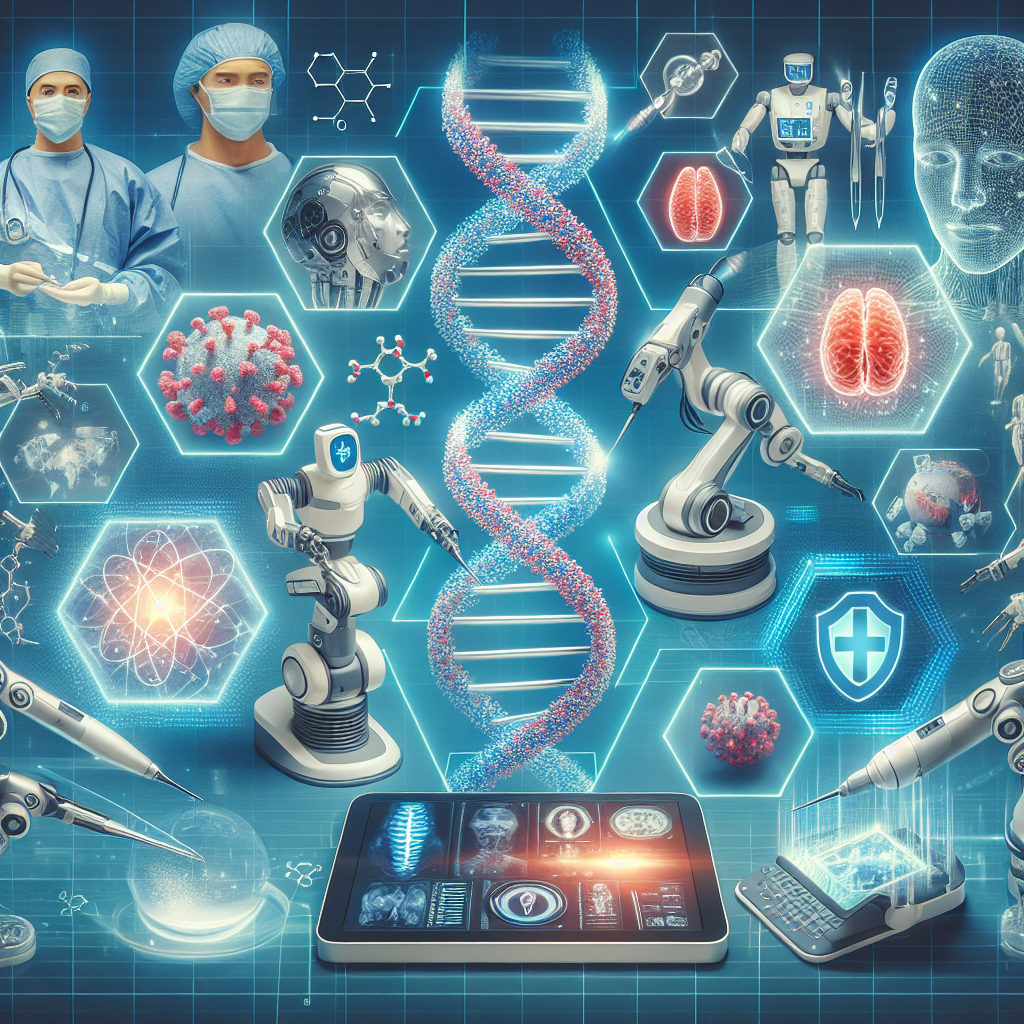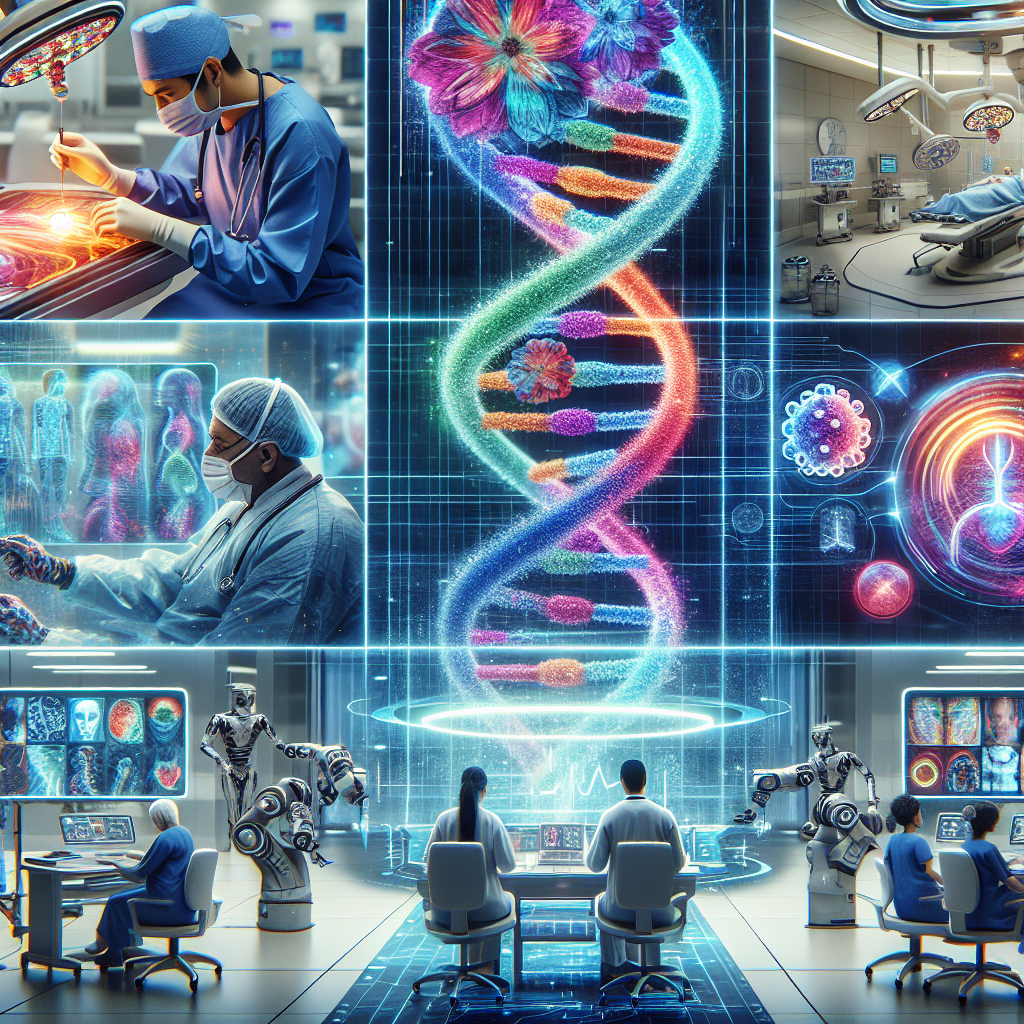Are you ready to witness the future of healthcare? Get ready to be amazed by the groundbreaking advancements in the field of health solutions. From cutting-edge technologies to life-altering treatments, this article will take you on a journey through the revolutionary innovations that are transforming the way we approach our well-being. Brace yourself for a captivating exploration of the latest breakthroughs that promise to improve lives and redefine the boundaries of what is possible in the realm of healthcare. Are you ready to embark on this transformative adventure?
Revolutionary Advances in Health Solutions
Innovative Health Solutions have revolutionized the field of medicine and healthcare, providing unprecedented opportunities for personalized treatment, improved diagnosis, and enhanced patient care. With groundbreaking advancements in technology and research, the following areas have emerged as game-changers in the medical industry.


1. Precision Medicine
Precision medicine is a groundbreaking approach that tailors healthcare interventions to individuals, considering their genetic makeup, lifestyle, and environmental factors. By utilizing advanced genomic sequencing and analysis techniques, healthcare professionals can identify specific genetic variations that may influence an individual’s disease susceptibility, treatment response, and overall health outcomes. This personalized approach enables targeted treatment plans, resulting in improved patient outcomes and reduced adverse effects.
2. Artificial Intelligence in Healthcare
Artificial Intelligence (AI) is transforming healthcare by augmenting clinical decision-making, improving diagnostics, and streamlining administrative tasks. AI algorithms can analyze large datasets, identify patterns, and provide insights that human physicians may overlook. Machine learning algorithms can detect diseases such as cancer at an early stage with a high level of accuracy, potentially saving lives. Moreover, AI-based chatbots and virtual assistants can enhance patient engagement, answer medical queries, and improve overall healthcare access.
3. Telemedicine and Remote Patient Monitoring
Telemedicine and remote patient monitoring technologies have revolutionized the way healthcare is delivered, especially in rural areas and during emergencies. Through video consultations, patients can receive immediate medical advice, diagnosis, and treatment without the need for in-person visits. Remote patient monitoring devices allow healthcare providers to track patients’ vital signs, medication adherence, and overall health condition, enabling early interventions and preventing hospital readmissions.
4. Gene Editing and Gene Therapies
Gene editing and gene therapies hold immense potential for treating genetic disorders and certain types of cancers. Innovative gene editing techniques like CRISPR-Cas9 have revolutionized the ability to modify specific genes, potentially correcting genetic mutations and preventing the progression of diseases. Gene therapies involve introducing therapeutic genes into a patient’s cells to replace or compensate for abnormal genes. These advancements offer hope for previously untreatable conditions and represent a significant shift towards targeted, precision-based treatments.


5. 3D Printing in Healthcare
3D printing technology has made remarkable strides in various industries, and healthcare is no exception. Medical professionals can now utilize 3D printers to create patient-specific implants, prosthetic limbs, and even organs. This breakthrough allows for personalized and cost-effective solutions, reducing the waiting time for organ transplants and improving the quality of life for individuals with disabilities. Additionally, 3D printing aids in surgical planning, enabling surgeons to have accurate models of patients’ anatomies and practice complex procedures before operating.
6. Nanomedicine
Nanomedicine refers to the application of nanotechnology in healthcare, with the potential to revolutionize drug delivery, diagnostics, and disease monitoring. Nanoparticles can be designed to specifically target diseased cells, minimizing damage to healthy tissues and reducing side effects. These tiny particles can carry drugs directly to the affected areas, improving treatment efficacy and reducing the dosage required. Furthermore, nanosensors enable real-time monitoring of physiological parameters, providing valuable insights into an individual’s health status.
7. Immunotherapy
Immunotherapy has emerged as a groundbreaking approach to treating various cancers and autoimmune diseases. By harnessing the power of the immune system, immunotherapy therapies can target and destroy cancer cells, potentially leading to long-lasting remissions. Techniques like immune checkpoint inhibitors and CAR-T cell therapy have shown remarkable success in treating aggressive forms of cancer, offering hope to patients who previously had limited treatment options. Immunotherapies are also being explored for the treatment of autoimmune diseases such as rheumatoid arthritis and multiple sclerosis.
8. Wearable Health Technologies
Wearable health technologies, such as fitness trackers and smartwatches, have become increasingly popular in recent years. These devices can monitor fitness levels, heart rate, sleep patterns, and even detect abnormal heart rhythms. By providing individuals with real-time data about their health, wearable technologies encourage self-monitoring and promote healthier lifestyles. Moreover, they enable healthcare professionals to gather valuable information for remote patient monitoring and early disease detection.
9. Big Data Analytics in Healthcare
The healthcare industry generates massive amounts of data, ranging from electronic health records to medical imaging. Big data analytics allows for the integration and analysis of these vast datasets, leading to valuable insights and improved patient care. By identifying patterns and trends, healthcare providers can make more informed decisions, predict disease progression, and tailor treatment plans to individual patients. Furthermore, big data analytics can aid in population health management and resource allocation, optimizing healthcare delivery on a broader scale.
10. Virtual Reality and Augmented Reality in Medicine
Virtual reality (VR) and augmented reality (AR) have the potential to transform medical education, surgical planning, and patient rehabilitation. VR simulators provide a safe environment for medical students and professionals to practice complex procedures, improving their skills and confidence. AR technology enables surgeons to overlay virtual anatomical structures onto a patient’s body during surgical planning, enhancing precision and reducing risks. VR is also being utilized in various forms of therapy, such as pain management and phobia treatment, providing immersive and effective experiences.
With these revolutionary advances in health solutions, the future of healthcare looks promising. From personalized treatments to enhanced diagnostics and remote care, these innovations are transforming the way healthcare is delivered and experienced. By embracing these cutting-edge technologies and approaches, we can anticipate improved patient outcomes, increased efficiency, and ultimately, a healthier population.



